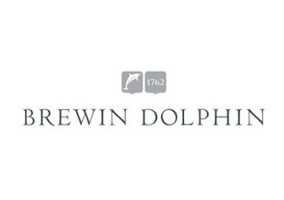A decade of government austerity has placed considerable pressure on grant making and service providing charities at a time when their ability to generate income has been particularly tough. To better understand the concerns of charities, Brewin Dolphin has surveyed 110 charities across the UK with the findings published in a report called Charity Investment: navigating uncertain times.
The primary concern of charities surveyed was the need for income. It perhaps has always been thus. But what is particularly concerning is that half of the 110 charities who contributed to our report are not confident in their ability to meet their charitable objectives, citing political uncertainty and the threat of a global economic downturn. Worryingly, 50 per cent are not confident that their funding levels will enable them to meet their objectives.
We first conducted this research two years ago in 2017. Back then, just 11 per cent of charities surveyed feared the impact of a global recession: now, this has more than doubled, with 26 per cent fearing a global slowdown in the economy. Over a third (35 per cent) of charities surveyed this year point to political uncertainty as a significant threat to their ability to generate income.
Brewin Dolphin manages some £3.6bn of assets for over 1,600 charities across the UK, and our research sought to better understand their appetite and understanding of risk, their wider financial concerns, the rise of alternative investments, trustee understanding of investment, and of course ethical investing.
Low growth in markets was cited as the primary investment risk for nearly half (48 per cent) of the charities surveyed, closely followed by market volatility (44 per cent). Low growth and low interest rates are a real concern for investors, and as investment managers we have a responsibility to explain the implications to our invested charities.
We would argue that it is important that charities stay invested and focus on long-term investment objectives rather than be distracted by short term movements in markets, whilst recognising all the uncertainties and worries that keep trustees and finance teams awake at night.
Forty per cent of the charities surveyed in our report hold what we call ‘alternatives’, which will include, for example, property, infrastructure and private equity funds. It appears that ‘alternatives’ are no longer alternative but a mainstream holding for invested charities.
Ethical screening policies are also a mainstay for charities with investment policies, with 77 per cent telling us they now include ethical investment criteria. Over half (58 per cent) tell us they negatively screen their investments, with just 13 per cent positively screening investments, holding investments in companies making a positive contribution to society.
When it comes to trustee knowledge and experience, there has been a small rise in the proportion of charities who rate this as good or extremely good in their own organisation. Nonetheless, 48 per cent are still seeking trustees with different skills or more varied backgrounds.
The vast array of regulatory issues bearing down on charities remains a concern for many, with a number of smaller organisations saying that the ‘one size fits all’ model does not work and has a serious impact upon delivering charitable activities.
What do charities need to keep in mind given with regards their invested funds? We would suggest charities consider the six following points:
- Consider how your investment policy ties into today and tomorrow’s budget requirements.
- Understand how inflation can erode the value of money and what that will mean for invested capital.
- Look to ride out short term volatility by focussing on long term goals for invested capital. Risk cannot be avoided, but it can be managed.
- Understand the role a diversified portfolio can play.
- Consider the bigger picture, particularly your own charitable aims and how they sit with investments held.
- And finally, work with investment managers who offer the advice, guidance and support your charity needs.
A copy of Brewin Dolphin’s Charity investment: hopes and fears for 2020 is available via here.
Ruth Murphy is head of charities at wealth manager Brewin Dolphin
This content has been supplied by a commercial partner.
Related articles











